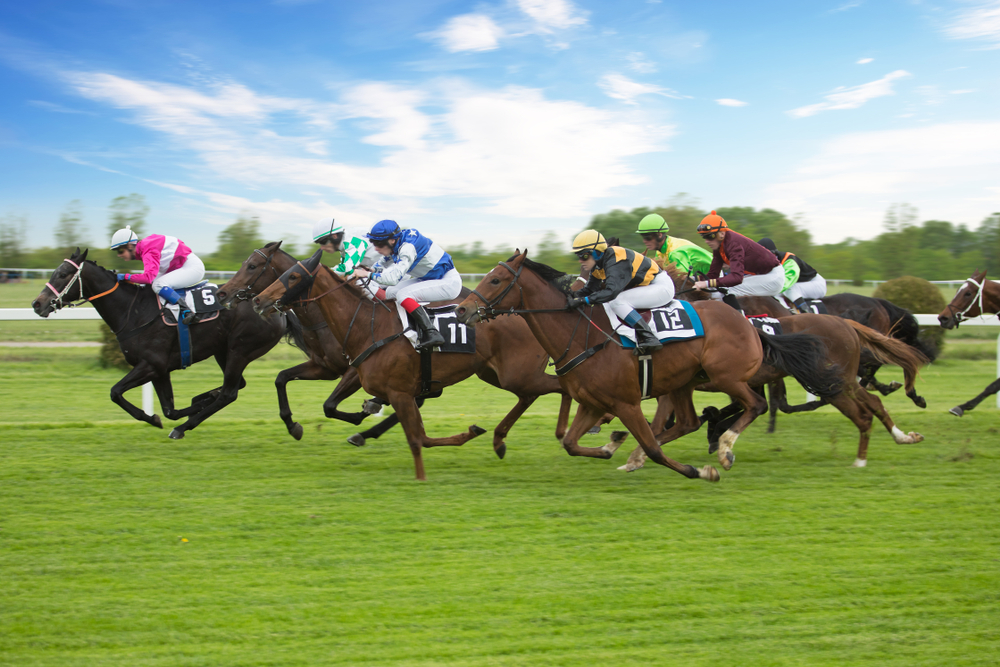The green lumber fallacy is a cognitive error described by Nassim Nicholas Taleb in his book “Antifragile”. The term derives its name from an anecdote about a successful trader of green lumber, which refers to newly sawn wood that has not yet been dried, who operated under the mistaken belief that green lumber was actually lumber painted green. This fallacy highlights a common misconception: expertise or knowledge in a particular field does not necessarily translate to an understanding of how to trade or bet on that field successfully.
Applied to the world of betting, this fallacy suggests that a deep knowledge of a sport does not guarantee an equally profound insight into sports betting. Critical elements such as market understanding and risk management are often underrated. Hence, while extensive knowledge about a sports team’s statistics, players, and trends could be beneficial, it doesn’t directly equate to proficiency in predicting outcomes within the betting markets. In essence, the fallacy underscores the distinct nature of knowledge necessary for successful sports betting as compared to merely understanding the sport itself.
Key Takeaways
- The green lumber fallacy describes a disconnect between subject knowledge and trading success.
- Knowledge of a sport doesn’t necessarily imply expertise in sports betting.
- Understanding market dynamics and risk is crucial for betting proficiency.
Need Help Beating the Bookies?
Our expert betting tipsters have been taking cash off the bookies since 2014! If you need a helping hand with winning then why not check them out?
Browse Our Tipsters
Punter’s Profit Pro
One of the Most Reliable and Consistent Horse Racing Tipsters at Betting Gods
Visit PROFILEUnderstanding the Green Lumber Fallacy
The Green Lumber Fallacy is an intriguing cognitive bias that reveals a disconnect between knowledge and performance, particularly in trading and betting. It underlines the complexity of expertise and the common misconceptions about what kind of knowledge is truly valuable in practical situations.
Origins and Definition
The concept originates from an anecdote in Nassim Nicholas Taleb’s book “Antifragile,” where he describes a successful trader of green lumber who actually thought he was trading wood painted green, rather than freshly cut timber, which is referred to as ‘green’ because of its moisture content. Taleb introduces this fallacy to challenge the assumption that expertise in a domain’s minutiae is a prerequisite for success in trading or betting within that domain. He suggests that understanding risk and having practical skills can be more crucial than theoretical or academic knowledge.
Examples in Trading and Betting
In trading, one might encounter a trader with a strong grasp of market sentiment and risk management who outperforms peers with extensive knowledge about the financial products they trade. This trader’s success hinges not on detailed product knowledge but a mastery of trading dynamics itself.
Similarly, the fallacy often surfaces in betting. A punter with deep knowledge of sports teams and players might assume this translates directly to betting success. However, understanding the green lumber problem in this context means recognising that a keen sense of market behaviour and risk is often more valuable than sports trivia. The psychology behind this misconception points to cognitive biases that can mislead one’s judgement on what informs effective decision-making in betting.
Through these examples, the Green Lumber Fallacy underscores the nuanced nature of expertise and the importance of focusing on relevant and applicable knowledge over the impressive but potentially irrelevant details.
Impact of the Fallacy on Betting
The Green Lumber Fallacy can significantly influence betting outcomes, highlighting the disconnect between a bettor’s expertise in a sport and their proficiency in sports betting. Understanding this distinction is crucial for anyone involved in betting on sports.
Sports Betting and Unrelated Expertise
In sports betting, possessing in-depth knowledge of a sport does not necessarily confer a betting advantage. A football enthusiast who knows every Premier League player’s statistics may presume that such expertise will directly translate into successful wagering. However, this belief often ignores the subtleties of betting odds, market movements, and the nature of value wagers.
Misguided Dependence on Statistical Knowledge
Many bettors heavily rely on statistical and historical data, believing that it will ensure favourable betting outcomes. For instance, a baseball fan may cite an MLB player’s past performance to support a bet without considering the current conditions that may impact the player’s game. This overreliance on quantitative analysis can overshadow other crucial betting factors such as team dynamics and player psychology.
Perception of Risk and Volatility in Betting
A proper understanding of risk and volatility is essential for successful sports betting. The assumption that knowledge of a sport reduces the inherent risk in betting often leads to overlooking the unpredictable nature of sports outcomes. Whether it’s a sudden change in an NFL team’s strategy or unexpected weather conditions affecting a golf tournament, a bettor’s perceived control over the risk is often illusory.
Psychological Aspects of the Green Lumber Fallacy
The Green Lumber Fallacy within betting highlights the often overlooked but crucial aspects of psychological tendencies such as confirmation bias and the paradoxical benefits that may come from recognising one’s ignorance. These psychological elements can greatly influence betting decisions and outcomes.
Role of Confirmation Bias
Confirmation bias plays a vital role in the Green Lumber Fallacy, as bettors tend to favour information that confirms their preconceptions, often to the detriment of their bets. When a trader or bettor cherishes particular data without appropriate scrutiny, they might overlook critical evidence that contradicts their strategy. For instance, a bettor might focus on a football team’s winning streak while ignoring the rigorous schedule that may have fatigued the players—a factor that could impact future performances.
- Evidence Ignored: Bettors often disregard information that could lead to better decision-making.
- Selective Attention: They may only pay attention to outcomes that confirm their strategy.
Ignoring Valuable Ignorance
Ironically, acknowledging one’s ignorance—understanding the limits of one’s knowledge—could be an asset in betting. The concept suggests that misplaced expertise or the belief in having the subjective analysis and knowledge could overshadow the simple, objective factors that are often the true indicators of a successful bet. The fallacy stems from the idea that a trader who knew little about the substantive aspects of ‘green lumber’ could still trade it successfully, demonstrating that sometimes practical experience trumps theoretical knowledge.
- Practical Experience: Success in betting often comes from experiential learning rather than academic or theoretical understanding.
- Objective vs Subjective: Bettors should weigh the objective evidence equally, if not more than their subjective interpretations or self-assessed expertise.
The Fallacy in Financial Trading
The Green Lumber Fallacy in the context of financial trading underscores the misconception that deep knowledge of a financial instrument equates to effective trading strategy and market success.
Currency Trading Misconceptions
In currency trading, the fallacy often emerges when individuals assume that a thorough understanding of geopolitical and economic factors will directly translate into profitable trading decisions. Currency traders frequently encounter the volatility that such knowledge cannot always predict, thus highlighting the potential disparity between market understanding and actual trading performance.
Stock Market Fallacies
The stock market is rife with instances where investors may misconstrue familiarity with a company’s business as a certain path to financial gains. Successful traders recognise that such knowledge, while beneficial, is insufficient without understanding the complexities of market sentiment, trading volumes, and financial statements analysis. Nassim Nicholas Taleb’s work points out that the skills needed to make money trading on the stock market require more than just industry insight.
The Importance of Order Flow Analysis
Order flow analysis is pivotal for traders in both currency and stock markets as it provides real-time insight into buying and selling pressure. By analysing the order flow, traders can decipher the potential direction of financial volatility and make informed decision making. This is often a more immediate indicator of market dynamics compared to extensive knowledge of the traded instrument itself.
Relevant Concepts and Theories
This section explores key theories that enhance our understanding of decision-making in betting, notably within the framework of unexpected events, probability, and value of statistical analysis.
Antifragility and Decision-Making
Nassim Taleb introduced the term antifragile in his book “Antifragile: Things That Gain from Disorder”. Antifragility surpasses resilience or robustness, describing a quality that allows something to benefit or grow stronger from volatility and shocks. In betting, a strategy that is antifragile doesn’t merely resist unpredictability; it thrives on it. Decision-making in this context values strategies that gain from the very randomness and chaos that often characterise sports events.
The Black Swan Theory
Taleb’s Black Swan theory deals with the extreme impact of rare and unpredictable outlier events and the human tendency to retrospectively rationalise these events. In the context of betting, a Black Swan event might be an unforeseen upset in a sports match that defies prevailing betting odds. Understanding such low-probability, high-impact events is essential for bettors, as it informs risk management and the unpredictability inherent in sports betting.
Moneyball and Metrics in Sports
The concept of Moneyball relates to the book and film of the same name which discuss the Oakland Athletics baseball team’s analytical, evidence-based approach to assembling a competitive team despite budget constraints. In betting, the Moneyball approach emphasises the value of key metrics beyond traditional statistics. Bettors leveraging a Moneyball strategy look for undervalued players or teams and use advanced data analysis to inform their bets, rather than relying on conventional wisdom or betting tips.
Each theory has a profound impact on how individuals understand risk, probability, and the value of knowledge when making decisions in betting environments. These concepts challenge traditional betting methods by emphasising systemic thinking, recognition of improbable events, and reliance on quantifiable metrics over subjective judgement.
Strategies to Overcome the Fallacy
To successfully navigate the pitfalls of the Green Lumber Fallacy in betting, one must implement targeted strategies. These methods not only dispel common misconceptions but also encourage a deeper understanding of the market dynamics.
Adopting an Analytical Approach
An analytical approach is crucial for bettors seeking to make informed decisions. This involves a rigorous analysis of data rather than relying on superficial knowledge. Bettors should:
- Scrutinise trends and statistics: Look beyond the obvious and study patterns that dictate outcomes.
- Evaluate risk objectively: Assess probabilities without letting biases cloud judgement.
Appreciating the Value of ‘Skin in the Game’
Having ‘skin in the game’ refers to possessing a vested interest in the outcome. It’s about commitment rather than mere participation. For a bettor, it means:
- Taking accountability: One’s own money is at stake, prompting more diligent analysis.
- Learning from experience: Direct involvement leads to a practical understanding of the betting landscape.
Cultivating Genuine Expertise
Genuine expertise transcends basic knowledge of a subject. It’s the in-depth insight that a lumber trader has of their market. Bettors should:
- Focus on relevant knowledge: Identify information that directly impacts betting decisions.
- Continuous learning: Commit to understanding the nuances of sports betting beyond the sport itself.
By applying these strategies, one can move past the illusion of knowledge and develop the kind of expertise that yields better judgement and more consistent results in the realm of betting.
Frequently Asked Questions
This section addresses common inquiries regarding the impact and recognition of the green lumber fallacy in betting, its consequences for financial decision-making, and the broader implications for economic theories and market predictions.
How does the green lumber fallacy affect decision-making in financial trading?
The green lumber fallacy highlights a disconnect between having specific market knowledge and making successful financial decisions. Traders affected by this fallacy may overlook crucial factors, focusing on irrelevant information, potentially leading to misguided trades.
What are the implications of the green lumber fallacy on risk assessment strategies?
Those influenced by the green lumber fallacy tend to underestimate or misconceive the true risks involved in a betting situation. As a result, they base risk assessment strategies on incorrect assumptions, which could result in inadequate risk management.
How can one recognise the influence of the green lumber fallacy when investing?
Bettors can identify the green lumber fallacy’s influence by examining their decision-making processes for overreliance on superficial or irrelevant data, ensuring that they understand the core aspects of the financial products they are dealing with.
In what ways does the green lumber fallacy challenge economic theory?
The green lumber fallacy questions the rationality assumption in economic theory by showing that successful market outcomes can sometimes stem from decisions based not on a deep understanding of a product but rather on a misinterpretation of its nature.
What role does the green lumber fallacy play in shaping market predictions?
Market predictions are often premised on accurate assessments of relevant economic indicators. The green lumber fallacy, when it influences predictions, illustrates how the wrong elements can be mistakenly believed to forecast market movements.
Can the green lumber fallacy provide insight into the behaviour of bettors in the markets?
Understanding the green lumber fallacy offers valuable insights into betting behaviours, indicating that a nuanced grasp of the market can outweigh a comprehensive understanding of a sport or other betting context, influencing bettors’ market actions.





